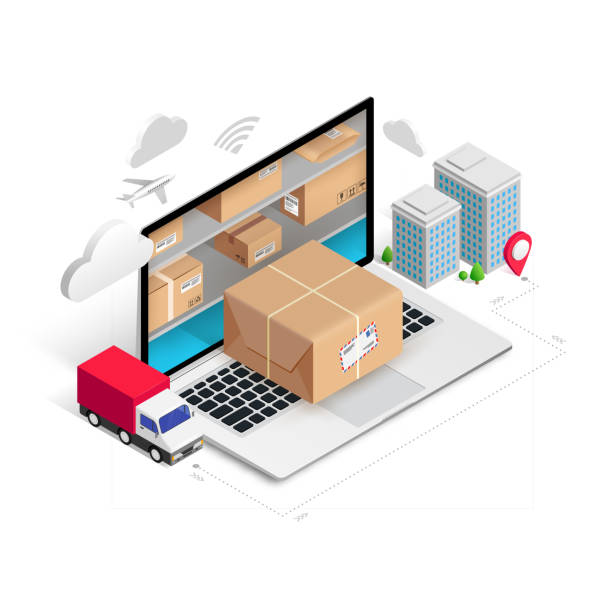The introduction of machine learning, artificial intelligence, and data analytics since the launch of Amazon is pushing the boundaries of e-commerce and e-commerce logistics to help business owners improve order fulfillment and increase efficiency.
With the advent of the Internet, most e-commerce businesses are looking to maintain and improve order fulfillment and improve performance as much as possible through machine automation rather than increasing human labor to improve the customer journey.
What is e-commerce logistics?
E-Commerce Logistics refers to the processes associated with the physical flows of storing and shipping inventory for an online store or marketplace with digital fulfillment being one of the most important parts.
…………. What it entails
1. Management of inventories and stocks
This method makes it easier for digital stores to monitor inventory levels and prevent unexpected run out of products. This process provides predictions of which products have higher selling power than others and customers’ buying habits can help to predict how your product will sell in the near future, thus advising on restocking.
2. Warehousing/ Storage
This logistics operation process involves a physical warehouse where goods yet to be shipped to customers are stored, managed, and tracked. With the advancement of storage technology in recent years, e-commerce companies can easily track inventory using warehouse management systems.
3. Order Fulfillment
As the most important aspect of both logistics and e-commerce, this process ensures that customers receive their orders quickly and in good condition. Your company can either outsource this service to a third party or invest in an in-house order fulfillment service.
Importance of e-commerce logistics
E-commerce Logistics systems are an important strategy of agile management and some of the main
advantages include:
- Time and cost-effectiveness as it reduces labor-intensive expenses.
- High level of customer satisfaction with the purchasing procedure.
- Rapid services, delivery schedules, and invoice flexibility.
- Better productivity for both companies and customers.
- Monitoring of stock and deliveries in transit in real-time.
- Enhances and improves the order fulfillment pick, pack and shipment operation, and transport
documentation. - Efficient management of reverse logistics.
In summary:
Creating great e-commerce logistics is no small feat. This includes knowledge, well-defined processes,
and many other precautions. But if you follow all the steps and always strive for a great shopping
experience, you can be sure that your online store will pay off very well.

